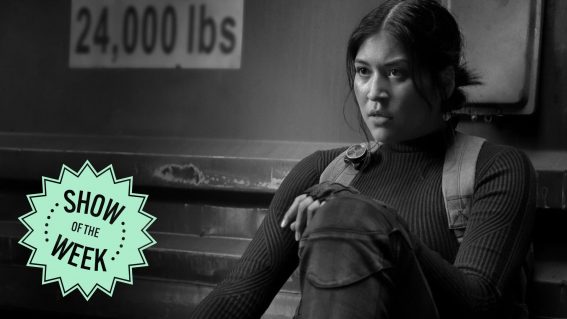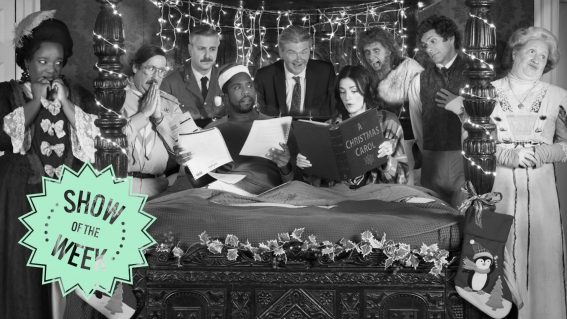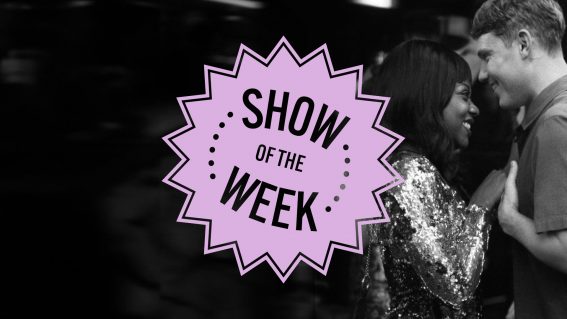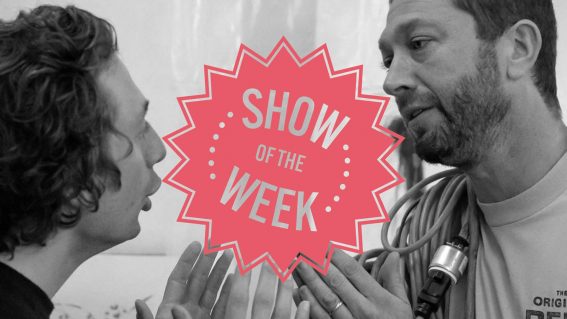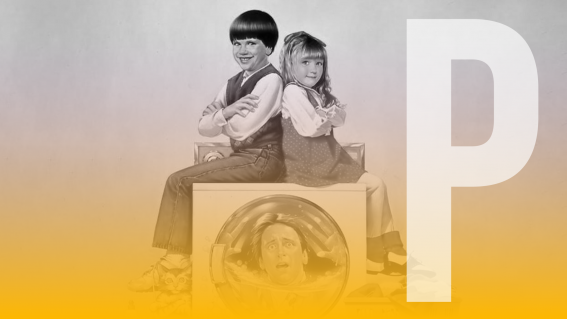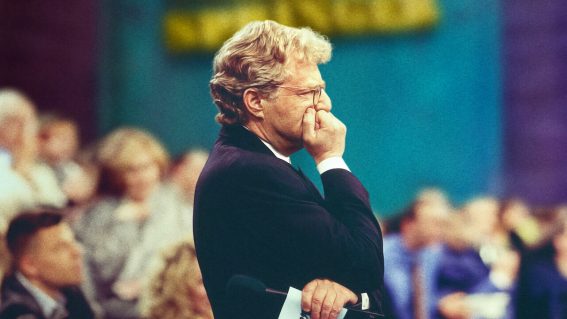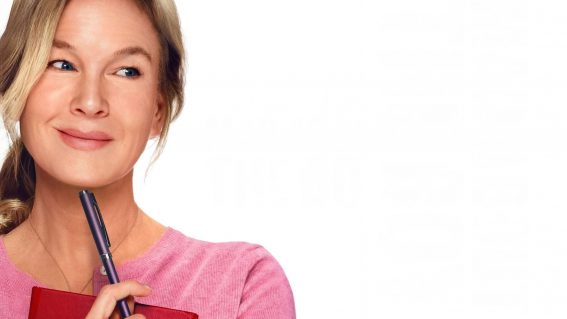Strange Planet asks all the most pressing questions in autistic life
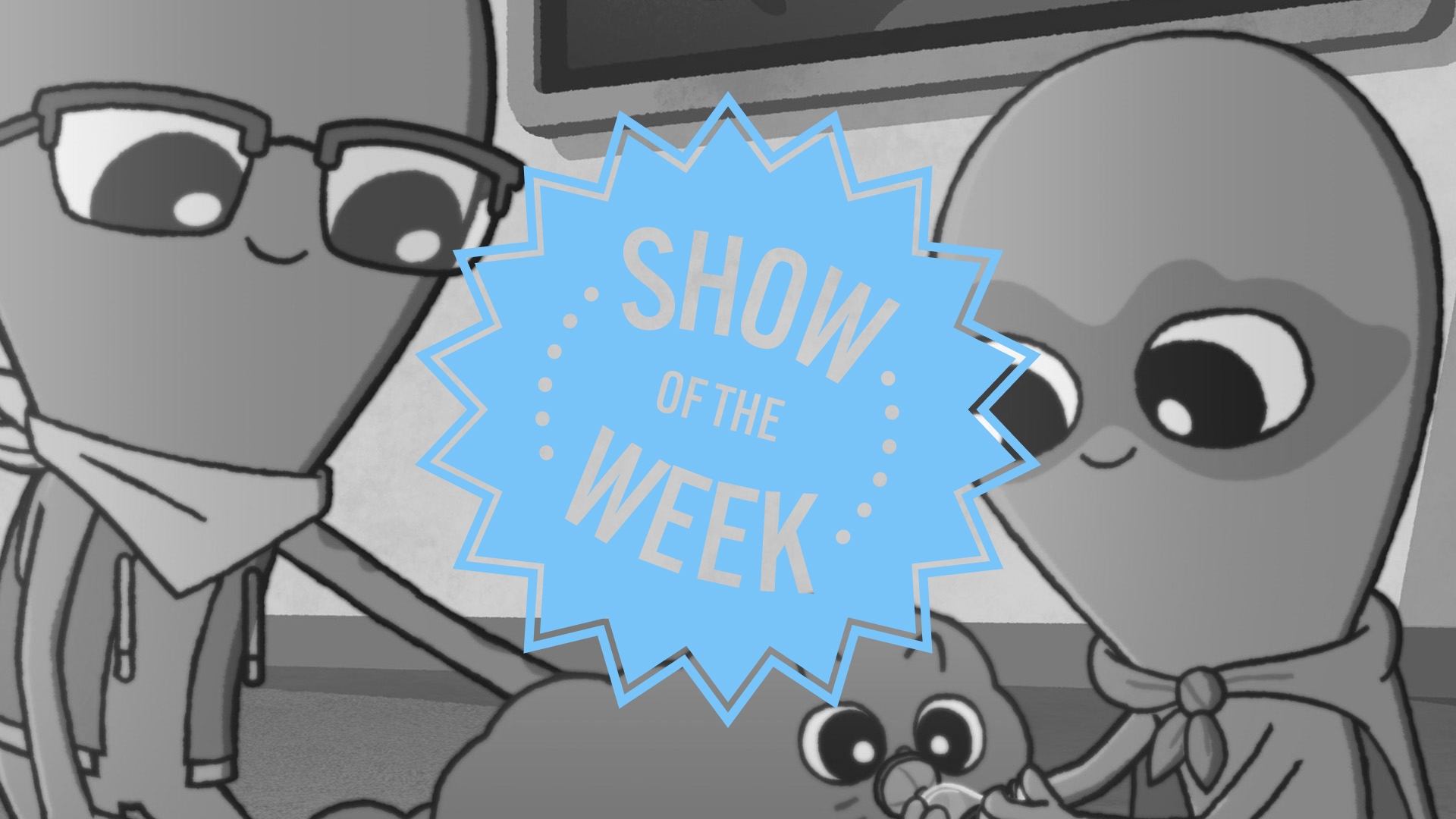
We’re all drowning in content—so it’s time to highlight the best. In her column, published every Friday, critic Clarisse Loughrey recommends a new show to watch. This week: The neurodivergent comedy of Strange Planet, Nathan W Pyle’s hit webcomic now brought to the screen with Dan Harmon.
People to like to say that being autistic in a neurotypical world makes you feel like an alien on a strange planet. I don’t know if Nathan W Pyle had ever heard of that notion when he first created his 2019 webcomic, Strange Planet, which now goes out, on a semi-regular basis, to his 6.6 million Instagram followers. But there’s something so perfect to me about this race of little, thumb-headed space beings, who have no gender or race but all share in their hyper-literal perception of humanity’s quirks.
For most readers, it’s a cute idea, a passing amusement. But the humour of Strange Planet, really, is just a comic exaggeration of a neurodivergent norm. Being autistic, often, involves a perpetual cycle of trying to parse why certain things are done a certain way, only to (usually) be told, to their profound disappointment, that there’s actually no reason behind it at all. Things are done because that’s how things have always been done. What a mess! In Apple TV+’s adaptation of Pyle’s comics, spearheaded both by him and Dan Harmon (who actually discovered he was on the spectrum while writing one of television’s most famous autistic-coded characters, Community’s Abed), we see these ideas fleshed out into ten, roughly 20-minute episodes.
Here, safety cards on airplanes are a “danger menu” that offer “further tips on how not to die”. Alcohol is a “mild poison” (well, that’s one just a fact). And, when it’s someone’s surprise party, everyone jumps out from behind the furniture and shouts: “We perceive you!” Instead of a comedy where we’re all encouraged to laugh at the socially unaware habits of the (frequently autistic-coded) side character, Strange Planet offers us a comedy where the illogical traditions of neurotypicals form the butt of every joke. Finally, the tables have turned. Some of the episodes will retrace a classic sitcom premise, or even combine two into one—the nervy love interest, at one point, is asked to take care of their crush’s cat, only to spill wine on their fur and not on the carpet.
Strange Planet asks all the most pressing questions in my own, autistic life: like, why exactly do musicians insist on pretending they’ve finished their set, walking off stage, and then coming back on stage like they’re paying us a favour? How did we decide which animals to domesticate and which ones to leave wild and free? Why can’t I be friends with a raccoon? Why exactly do people base major life decisions around the positions of the moon and the stars? Strange Planet goes where no one else dares, in a tone that may tease, but never judges.
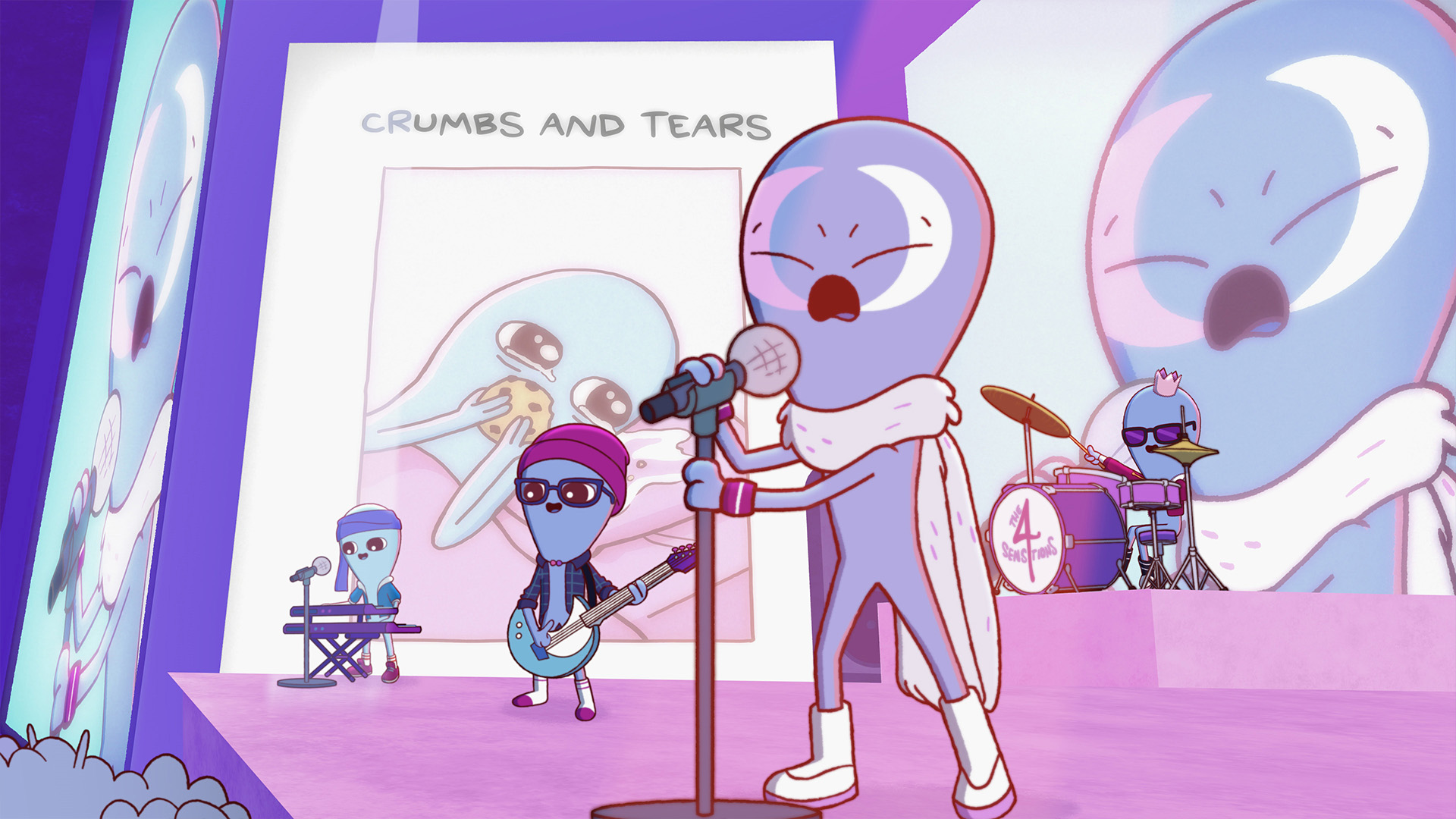
It also looks and moves in a way that seems tailor-made to soothe the neurodivergent brain. Like Pyle’s comics, it features a pastel palette, a haze of pinks, blues, and purples that blend into gentle shades in order to delineate the dimensions of this world. The music, by Isabella Summers, sounds like lo-fi Beach Boys music to study to. And there’s something universally sweet about the vocal performances—led by Tunde Adebimpe, Lori Tan Chinn, Danny Pudi, Hannah Einbinder, and Demi Adejuyigbe—who sound bright and open and deeply kind.
Strange Planet’s critical reception has been a little mixed. I understand that – it’s a single punchline sort of series that only really slows into the pacing of a genuine sitcom by its final episode, as its recurring characters collide at the Careful Now café, an establishment that dangles off the edge of a cliff, propped up by a handful of wooden beams. Mostly, it’s content simply to observe.
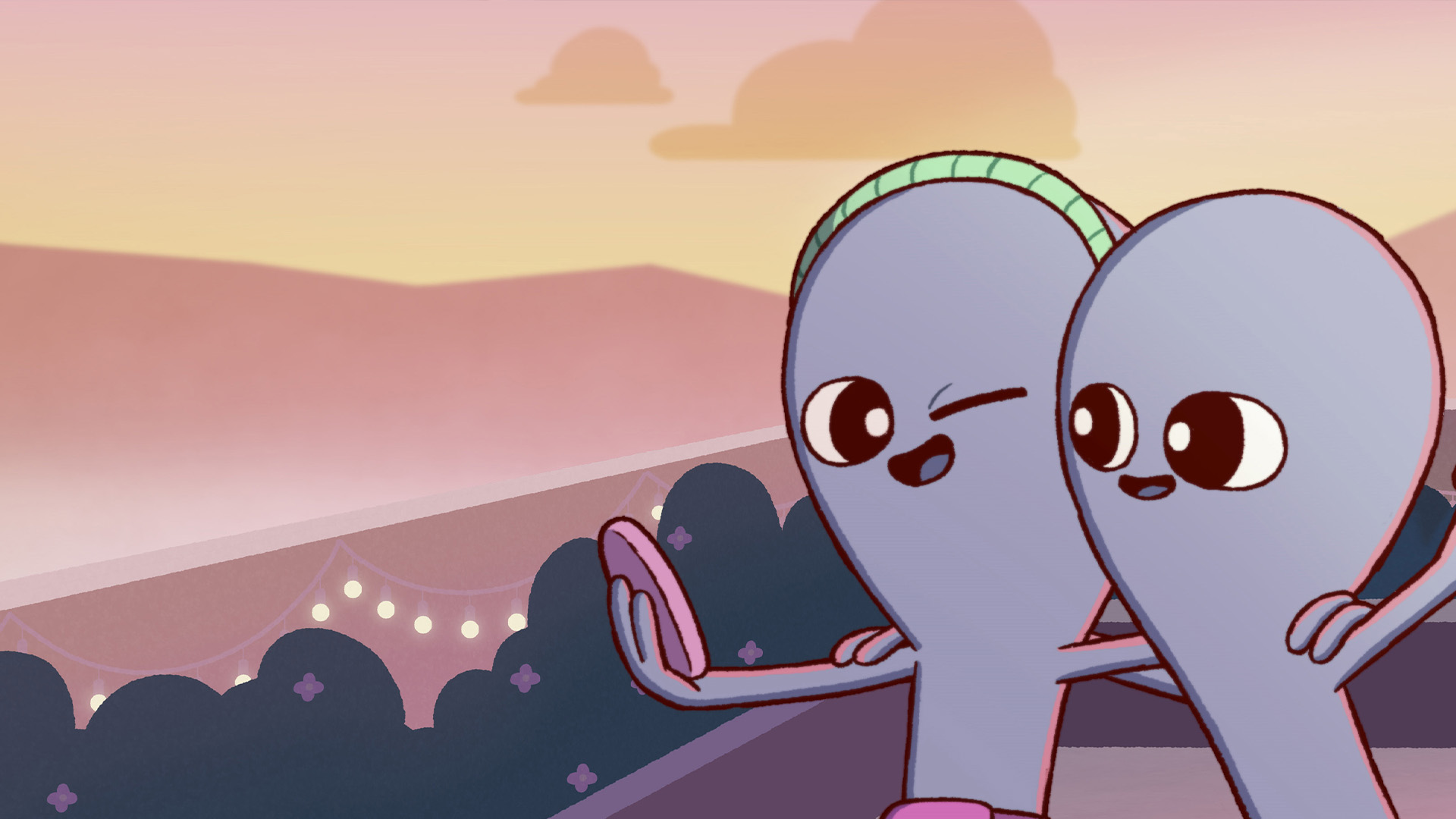
But while I wouldn’t call its musings profound, they are full of honesty and vulnerability. In one episode, Cynthia Erivo and Mamoudou Athie voice a parent and child living in the wake of loss, the former too afraid to return to their creative passion now that their muse is gone. Another, featuring Billie Lourd and Karan Soni, deals with the quarter-life crisis, and the crushing gap of understanding between children and the parents who were exposed to countless more opportunities in work, love, and life. Life’s hurdles can feel even more confusing when you’re neurodivergent, so it’s comforting to finally have a show that puts those struggles into simple words. Even if describing kissing as “mouth pushing” is a little gross.



